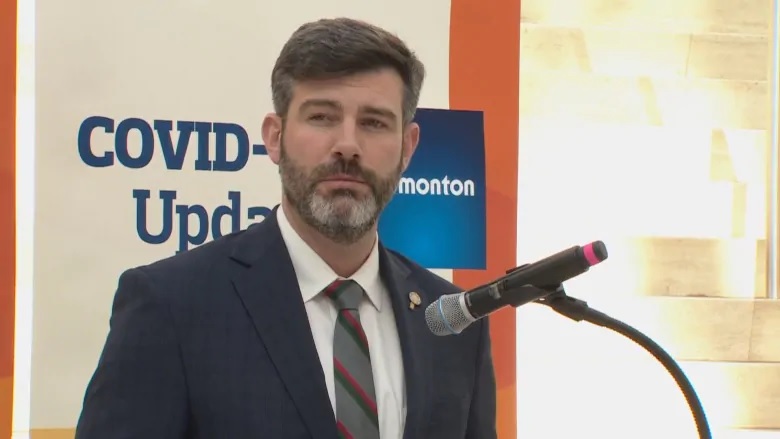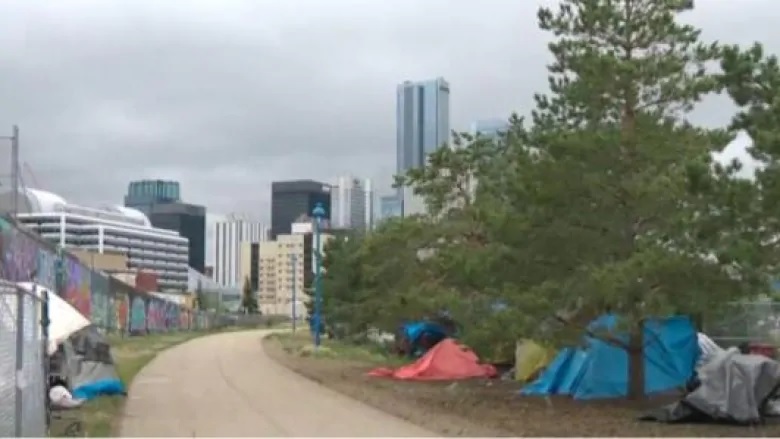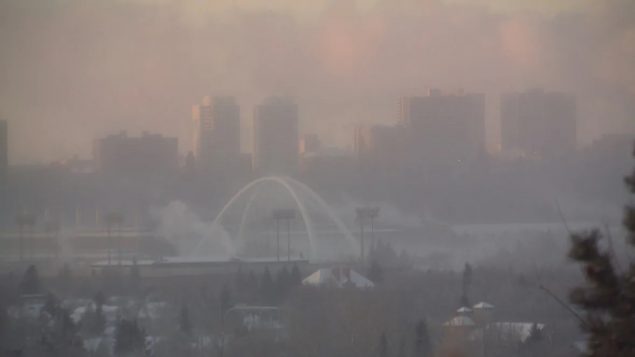The mayor of Edmonton wants some answers about just what happened Sunday night when a group of about a dozen homeless people was thrown out of the Central Station of the city’s Light Rail Transit system–into freezing cold temperatures.
Don Iveson says he will ask for a formal inquiry today.
“In light of the extreme cold we’ve been experiencing of late, it’s heartbreaking and it’s frustrating to watch,” Iveson said Tuesday, adding that he hoped the review will help city council make changes, if needed, to improve the implementation of extreme-weather protocols and “learn from this event.”
The incident took place as the city was providing extra shelter beds and a free overnight bus service to help homeless people cope with a bitter cold that saw the temperature drop to –21.5 C in central Edmonton Sunday night, with winds that made it feel at least 10 degrees colder.
It was recorded on video by the leader of a local Indigenious community watch group.
WATCH: Police evict homeless from Edmonton’s Light Rail Transit sytem’s Central Station:
Judith Gale, from Bear Clan Patrol, said she was distributing food to about a dozen people in the Central Station LRT shortly past 8 p.m. when officers approached and told the people to leave.
In the video, the officers told the group its members had to wear masks, which Gale said they had removed to eat.
Gale tells one of the officers she understands the COVID-19 mandatory mask rules, then says, “If they’re hungry, you know…” before trailing off.
“Yep, they’ll have to find a place to eat,” the officer replies.
An officer tells her there are shelters for the people to use.

Judith Gale said she was left ‘livid’ by the way the officers treated the homeless group. (CBC/Travis McEwan)
“He did not even ask if any of our brothers and sisters needed a ride to the shelters,” Gale told the CBC’s Andrew Jeffrey.
“He did not care at all.”
The officers’ actions were “totally wrong,” she told Jeffrey.
“This is inhumane.”
In a statement Monday, the Edmonton Police Service said the officers “should have done a better job at communicating our role in helping connect citizens to the City of Edmonton’s services and partner agencies whose goals are to keep vulnerable citizens safe and warm.”
Iveson said Tuesday he doesn’t want the city to re-open LRT stations for overnight sheltering, as it has in the past, saying the indoor temperatures are often still below freezing.
He said a better solution is needed.

Mayor Don Iveson is pictured at a news conference on March 16, 2020. (CBC/Trevor Wilson)
“But if people are going to be discharged from those spaces, my expectation would be that we have a referral mechanism in place” to direct people in need to social-service agencies, Iveson said.
“I was livid,” Gale said. “I really was, I was shaking. I didn’t know what to do, because these police people did not have any compassion at all.”
Bear Clan Patrol is an Indigenous-led community initiative that began in Winnipeg that provides food, clothing and hygience products to homeless people
A local group was launched in Edmonton last year.

Five vans were on the road round-the-clock last weekend in Edmonton to assist vulnerable people. (Hope Mission)
According to the Homeless Hub, an advocacy group, urban Indigenous Peoples experience homelessness at a disproportionate rate and make up a significant percentage of people experiencing homelessness in cities.
Homeless Hub reports that research shows that Indigenous homelessness in major urban areas ranges from 20-50 per cent of the total homeless population, while others have reported that the range may be much wider, at 11-96 per cent.
The number of homeless people in Canada remains a matter of debate.
The Homelessness Partnering Secretariat (HPS) has regularly estimated that between 150,000 and 300,000 individuals experience homelessness in Canada each year, with others saying the number is higher.

A cluster of makeshift camps crowds a park area northeast of downtown Edmonton in 2019. (City of Edmonton)
In January, a 51-year-old homeless Innu man, Raphaël André, was found frozen to death in a portable toilet in Montreal.
A short time later, Kimberly Squirrel, a 34-year-old mother of six from the Yellow Quill First Nation in Saskatchewan, was found frozen to death in a residential area of Saskatoon, three days after she had been released from the Pine Grove Correctional Centre, near Prince Albert, about 160 kilometres northeast of the city.
With files from CBC News (







For reasons beyond our control, and for an undetermined period of time, our comment section is now closed. However, our social networks remain open to your contributions.